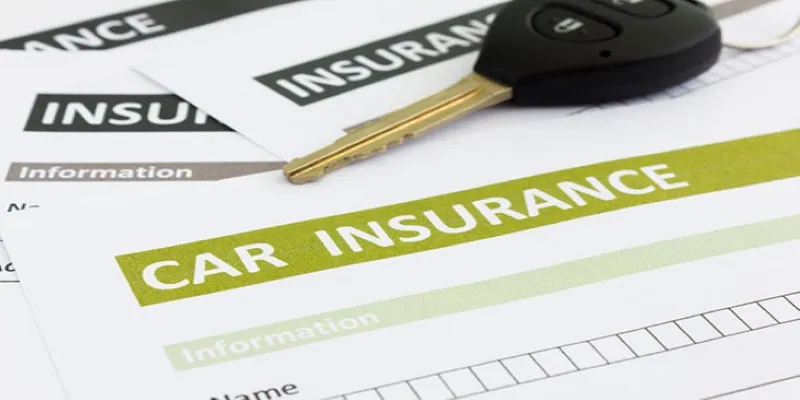What Are My Rights When I Buy A Used Car
Understanding your consumer rights is crucial when buying a used car. The process can be intimidating, but being informed ensures a fair deal. Whether purchasing from a dealership or a private seller, you have legal rights designed to protect you against fraud, misrepresentation, and other unfair practices.
Understanding Your Rights When Buying a Used Car

Knowing your rights as a consumer is particularly important when purchasing a second-hand car. These rights help protect you from fraud and ensure the sale is fair.
Lemon Laws and Warranties
Lemon laws protect buyers of new and used vehicles in most states. Typically, these laws provide compensation when a car’s defects significantly reduce its use, value, or safety. Implied warranties on used cars ensure that the vehicle is fit for ordinary road use.
Right to Information
You have the right to know the precise history and condition of the vehicle. Used cars must come with a Buyer’s Guide, and dealers must disclose any known defects. The vehicle must be sold “as is” or with a warranty.
Cooling-Off Period
Some states offer a ‘cooling-off’ period during which a used car buyer can cancel the purchase within a few days. However, this right is not universal, so it’s important to check local laws.
Federal Trade Commission (FTC) Protections
The FTC enforces rules against deceptive practices in used car sales, such as false advertising, odometer tampering, and misrepresenting a vehicle’s condition.
Always research local laws and consult a lawyer if you encounter problems before or after your purchase.
Inspecting the Vehicle: What to Look For

Inspecting a used car before purchase is vital. Here’s what to focus on during an inspection:
Exterior Condition
Check the car’s exterior for rust, dings, and uneven paint, which could indicate previous accidents or poor maintenance. Irregular tire wear may suggest misaligned wheels. Chips or cracks in the windscreen could become bigger issues over time.
Under the Hood
Check for leaks, corroded battery terminals, and worn belts and hoses. Examine fluid levels and colors; dirty oil or low coolant can be warning signs. Start the engine and listen for unusual noises indicating mechanical issues.
Interior Features
Test all electronics such as air conditioning, radio, and power windows. Inspect upholstery for excessive wear and stains. Be cautious of foul odors, which might indicate water damage or other issues. Check the trunk for leaks or rust.
Test Drive Performance
Take the car for a test drive. Pay attention to handling, acceleration, and braking. Listen for any unusual rattling and feel for vibrations that might suggest underlying issues. A thorough inspection can prevent costly surprises.
Negotiating the Price and Finalizing the Sale
Mastering the Art of Negotiation
Be prepared to negotiate. Use resources like Kelley Blue Book to understand the car’s value. The sticker price is often just a starting point, so offer a reasonable price backed by the vehicle’s condition or market trends.
Be confident yet courteous. Highlight any issues to negotiate a lower price, but remain non-aggressive; a cooperative approach often yields better results.
Sealing the Deal
Once you and the seller agree on a price, put everything in writing. The agreement should include:
- Agreed-upon price
- Any modifications to be made before sale
- Date of transfer
- Payment method
Be wary of any last-minute changes or additional fees. Stand firm on the agreed terms or walk away if necessary. Patience is key; take your time to avoid future headaches.
Protecting Yourself with a Used Car Warranty
A warranty can protect against unexpected repairs and expenses. Understanding your options and rights regarding warranties is essential for making an informed decision.
Types of Used Car Warranties
Used car warranties typically come in two forms: manufacturer’s warranty and extended warranty. A manufacturer’s warranty may still apply to recently used vehicles. Extended warranties can be purchased to extend protection after the original warranty expires.
What to Look for in a Warranty
When evaluating a warranty, consider:
- Coverage details: Know exactly what parts are covered and for how long.
- Deductibles: Understand any out-of-pocket costs for repairs.
- Transferability: Determine if the warranty can be transferred to a new owner if you sell the car.
- Reputation: Ensure the warranty provider has a good track record of honoring claims.
Your Rights and Responsibilities
As a consumer, you have the right to review warranty terms before purchasing. Read the fine print and ask questions if needed. Keep detailed records of all vehicle services, as failing to do so may impact your warranty coverage.
Conclusion
As a consumer, remember you have key rights when buying a used car. From lemon laws to warranty protections, these measures ensure you receive a fair deal. Take time to research the vehicle’s history, conduct thorough inspections, and ask questions. Use consumer protection laws to your advantage if you encounter problems after purchase.


